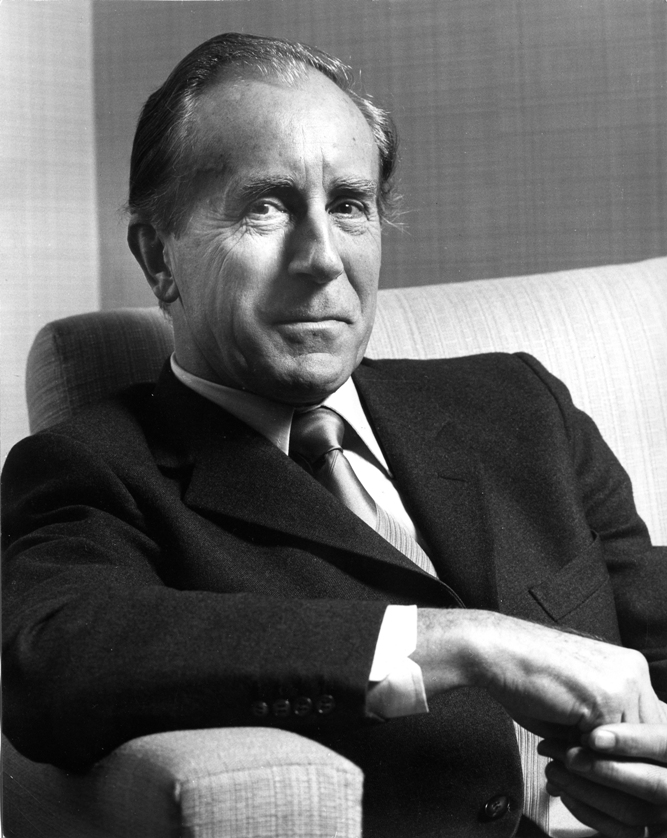

Sir Kirby Laing was born in Carlisle, a city in the north of England. It seems that running through the bloodline of the Laing family was a deep motivation to build things—the Laings built three things particularly well.
Firstly, although Sir Kirby’s great grandfather started by building single family homes, over the generations the family business (which was eventually led by Sir Kirby and his brother Sir John Maurice) has built roadways, power stations, bridges, worship places, hospitals, schools, stadiums and more. You have experienced the benefits of the Laing building and engineering passion if you have driven the M1, or worshiped at Coventry Cathedral, or enjoyed a concert or attended a sports event at Cardiff’s Millennium Stadium, or crossed the Second Severn Crossing between England and Wales (Historic England has curated and published on their website the John Laing Photographic Collection, a fascinating exhibit of the ways the Laing family business has changed the British landscape, both literally and socially). There is no question that Sir Kirby and his predecessors had a particular gift for building structures—brick, mortar, and steel.
However, they were also, secondly, successful at business building. It started in 1848 when Sir Kirby’s great grandfather James and his wife built their first house and then sold it at a profit to finance the building of two more houses (one of which would long be the family home). Three years after Sir Kirby and his brother Sir Maurice joined the family business (1953), John Laing and Sons was listed on the London Stock Exchange—at that time the company employed around 10,000 people. The two Laing brothers expanded and developed the family company over the following two decades.
Thirdly, the Laings have been committed to building a better world, not least through philanthropic endeavours. Under the Laing name, several charitable foundations have been established with the aim of improving the world. These foundations fund projects related to education and youth culture, poverty relief and aid to the vulnerable, global social and economic development, environmental care, medical welfare (both physical and mental), culture, and so on. The Laing family had “a strong Christian faith…Kirby’s beliefs informed both his career and his extensive philanthropic work, much of it practised through his own charity, the Kirby Laing Foundation.¹ The spirit of generosity that the many Laing trusts displays goes back at least to Sir Kirby’s grandfather and has continued through successive generations of the Laing family.
According to St Lawrence College’s tribute to Sir Kirby, during his two-decade chairmanship of John Laing & Son, he “became well known for his views, somewhat unfashionable in the construction industry, that employees were the lifeblood of a company and needed to be treated decently.”²
Sir Kirby established the Kirby Laing Foundation in 1972. The foundation has focused especially on “promoting the Evangelical Christian faith (Kirby Laing was a member of the Church of England), education and youth development, and medical research.”³ Among supporting many other good endeavours over the years, the Kirby Laing Foundation “has endowed Chairs in Theology at the Universities of Aberdeen, Oxford, Gloucestershire and Cambridge, as well as the John Laing Senior Lectureship in Reformation History at the University of Edinburgh’s School of Divinity.⁴
The Kirby Laing Centre for Public Theology is grateful for the life and legacy of Sir Kirby Laing and the generous support of the Kirby Laing Foundation.
¹ Obituary published in The Guardian.
² St Lawrence College Notable Alumni
³ Alex McIlhinney, Service of Giving: John Laing & His Trusts 1922-2022 (Darvel: Opal Trust Publisher, 2022), 280.
⁴ Ibid.